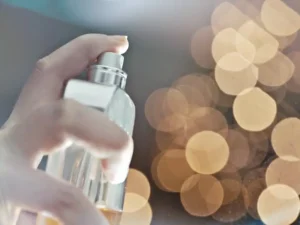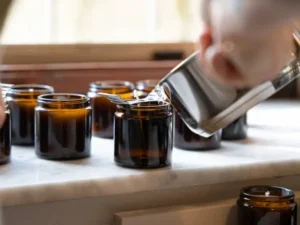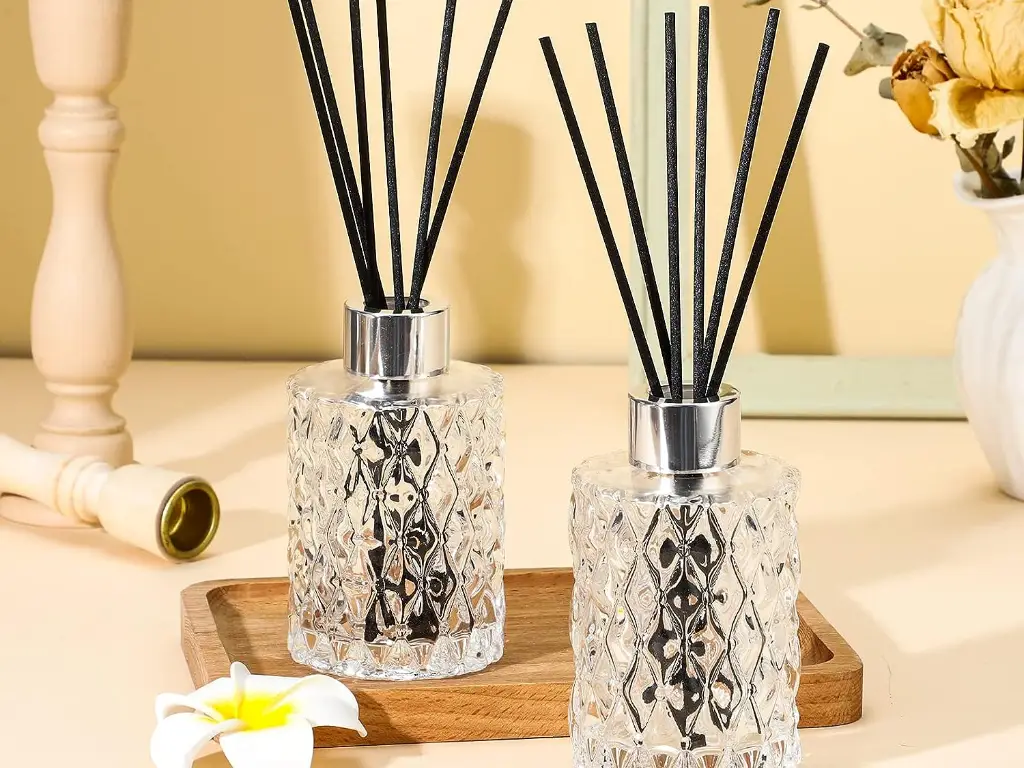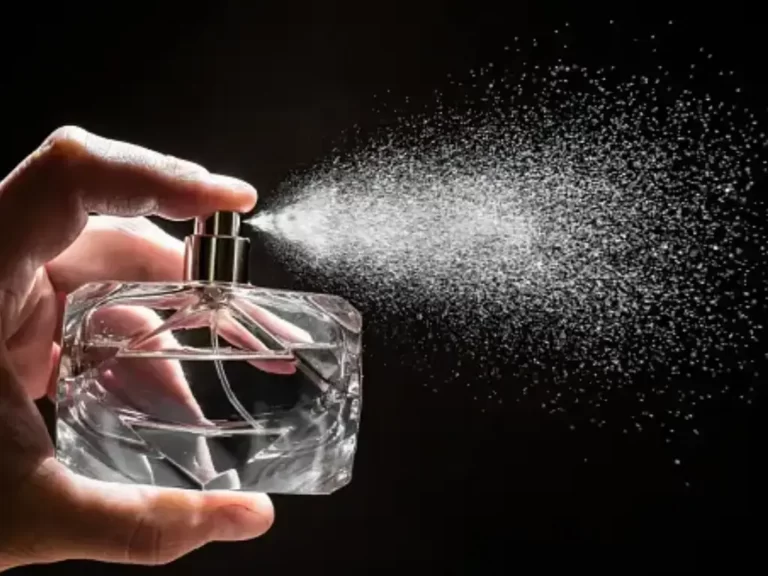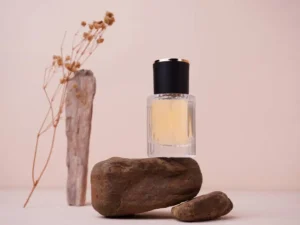
Table of Contents
The lifespan of a perfume bottle typically ranges from 3 to 5 years, but several factors influence its longevity, including ingredients, storage conditions, and whether the bottle has been opened. Proper storage can extend the shelf life of your perfume, ensuring it retains its original scent for as long as possible. If you’ve ever noticed your favorite fragrance fading or smelling different over time, you’re not alone. This guide explores the factors that impact perfume shelf life and provides expert tips to help you preserve your fragrance for years to come.
What Is the Average Shelf Life of a Perfume Bottle?
The shelf life of a perfume depends on its concentration, ingredients, and storage conditions. Higher concentration fragrances, such as Eau de Parfum (EDP) and Perfume Extract, last longer than lighter scents like Eau de Toilette (EDT) and Eau de Cologne (EDC).
Perfume Types & Their Average Shelf Life
| Perfume Type | Fragrance Oil Concentration | Shelf Life (Unopened) | Shelf Life (Opened) |
|---|---|---|---|
| Perfume Extract (Parfum) | 20%–30% | 6–8 years | 3–5 years |
| Eau de Parfum (EDP) | 15%–20% | 5–6 years | 2–3 years |
| Eau de Toilette (EDT) | 5%–15% | 3–5 years | 1.5–2 years |
| Eau de Cologne (EDC) | 2%–5% | 2–3 years | 1–1.5 years |
| Body Mist / Splash | 1%–3% | 1–2 years | 6–12 months |
Unopened perfumes last longer because they are protected from air, light, and temperature changes. However, once opened, oxygen exposure starts the degradation process, which affects scent quality over time. To maintain optimal fragrance performance, it’s recommended to use opened perfumes within 1 to 2 years.
How Ingredients Affect Perfume Longevity
Natural vs. Synthetic Ingredients
Perfumes with natural ingredients such as essential oils tend to have a shorter shelf life as they oxidize more quickly when exposed to air and light. In contrast, synthetic ingredients are more stable and can extend a perfume’s longevity.
| Ingredient Type | Shelf Life Impact | Example Ingredients |
| Natural Ingredients | Shorter lifespan | Essential oils, floral extracts |
| Synthetic Ingredients | Longer lifespan | Synthetic musk, aldehydes |
| Mixed Ingredients | Balanced longevity | Combination of natural & synthetic oils |
What Factors Affect Perfume Shelf Life?
1. Environmental Conditions
Light Exposure: UV rays degrade fragrance molecules, leading to scent alteration.
Temperature Changes: Heat accelerates evaporation and chemical breakdown.
Humidity: High moisture levels can trigger unwanted chemical reactions.
Best Practice: Store perfumes in a cool, dark place, away from direct sunlight and temperature fluctuations.
2. Perfume Bottle Design
Spray Bottles: Minimize air exposure and preserve fragrance quality.
Open-Top Bottles: Allow more air interaction, leading to faster degradation.
3. Frequency of Use
Each time a perfume bottle is opened, oxygen interacts with the fragrance, accelerating oxidation.
Solution: Use a travel-size spray bottle for daily use while keeping the main bottle sealed.
How to Properly Store Your Perfume
Keep it in a dark, cool place – Avoid bathrooms due to humidity fluctuations.
Store upright and tightly sealed – Prevents excessive air exposure.
Avoid refrigeration – Temperature shifts can create condensation, damaging the fragrance.
How to Tell If Your Perfume Has Expired
Look out for these signs:
Scent Changes: A faded, sour, or unpleasant odor.
Color Changes: Darkening, yellowing, or cloudiness.
Separation: Visible sediment or layer separation in the liquid.
While expired perfume isn’t harmful, its fragrance may become unpleasant or cause skin irritation. If your perfume has changed significantly in scent or appearance, it’s best to replace it.
How Long Does Perfume Last After Opening?
Once opened, perfumes typically last 1 to 2 years. To extend fragrance longevity:
Store properly (cool, dark environment)
Keep the cap sealed tightly
Minimize exposure to air and light
Tip: Write down the date you first open a perfume bottle to track its usage.
Tips to Make Your Perfume Last Longer
Application Techniques
Apply perfume to pulse points (wrists, neck, behind ears) where body heat enhances diffusion.
Spritz perfume on moisturized skin to help it last longer.
Avoid rubbing wrists together after application to prevent scent breakdown.
Preventing Waste
Use only 2-3 sprays per application to avoid excessive evaporation.
Store in a dry, cool place to prevent premature deterioration.
Best Time to Wear Perfume
After a shower: Clean, hydrated skin helps fragrance adhere better.
Daytime: Light floral or citrus scents for freshness.
Evening/Special Occasions: Stronger scents like amber or spice for long-lasting wear.
Seasons: Choose light, fresh scents for summer and warm, deep fragrances for winter.
Frequently Asked Questions (FAQs)
1. How long does perfume last if unopened?
Unopened perfumes can last 3 to 5 years, depending on storage conditions and ingredient quality.
2. Can expired perfume be harmful?
Expired perfume isn’t dangerous, but it may smell unpleasant or irritate sensitive skin.
3. Should I refrigerate my perfume?
Refrigeration isn’t recommended due to condensation risks. Instead, store in a cool, dry space.
4. Does Eau de Toilette expire faster than Eau de Parfum?
Yes. Eau de Toilette (EDT) has a lower fragrance oil concentration and typically lasts 3-4 years, while Eau de Parfum (EDP) lasts 5 years.
Conclusion
To maximize the lifespan of your perfume, store it in a cool, dark place, keep it sealed when not in use, and monitor changes in scent or color. By following these storage and application tips, you can enjoy your favorite fragrance for years without losing its magic!

